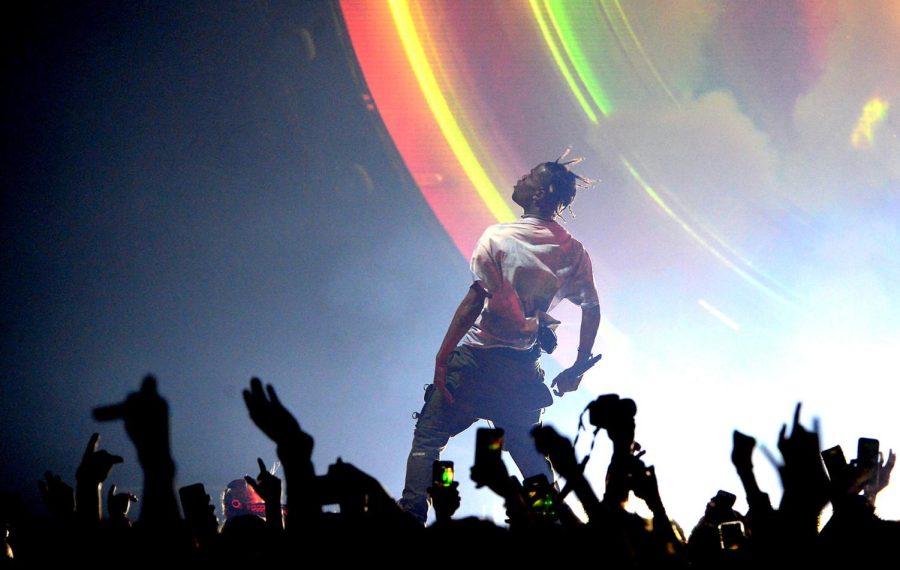Opinion | COVID-19 rocks crowd behavior expectations
Photo Courtesy of Jeff Siner/Charlotte Observer/TNS
Travis Scott performs at the Spectrum Center in Charlotte, North Carolina on March 24, 2019. Columnist Aparna Lakkaraju argues that COVID-19 is making it tough to reestablish proper crowd behavior at concerts.
December 1, 2021
After nearly two years of social isolation, it is no wonder everyone has been itching to jump back into life the way it was before the pandemic. However, the recent Astroworld tragedy is proof the pandemic has imprinted a deep-rooted psychological impact on humanity that vaccines cannot cure.
The Astroworld Festival, which took place in Houston, Texas, on Nov. 5, was hosted by rapper Travis Scott and headlined by other popular artists such as Drake, 21 Savage and Tame Impala. The festival, which was scheduled to take place over two days, had approximately 50,000 people in attendance on the first night when chaos ensued.
A crowd surge toward the stage during Scott’s performance resulted in a deadly mosh pit where concertgoers were asphyxiated and trampled. This deadly surge resulted in countless injuries and 10 reported deaths — the youngest victim being only nine years old.
In an Instagram post advertising tickets for the Astroworld festival, Scott himself emphasized how excited he was to host a chaotic “rager” after being stuck in isolation for so long. The rapper is not a stranger to reckless conduct at concerts: The last Astroworld Festival in 2019 resulted in a few injuries as well, but his infamous ragers have never resulted in deaths — until now.
Research psychologists claim that merely 10 days of social isolation can impact a person psychologically for up to three years, so it comes as no surprise that the social isolation the public has braved from the pandemic will leave a lasting impact on society for many years to come.
Get The Daily Illini in your inbox!
Historically, deaths at festivals have been rare occurrences. For a much earlier example of a crowd nightmare, one can recall Woodstock ’99 in Rome, New York, a festival free from the shadow of a pandemic.
The much-anticipated music festival — which Rolling Stone cites was intended to be a celebration of love, peace and happiness — slowly descended into madness as the crowd of 200,000 people set fires and committed numerous counts of sexual assault; the event resulted in three deaths and a slew of injuries.
Humans are more susceptible to being influenced into making irrational decisions after long periods of feeling isolated and alone, especially when part of a large crowd — the Astroworld crowd surge is demonstrative of this. After all, Aristotle argued that humans are social animals.
The disconnect from others that so many are presently feeling is an unspoken side effect of the pandemic, and in the desperate urge to fix it, people are becoming more irrational when they find themselves in large crowds.
This irrationality has increased the severity of concert violence, which is apparent in the contrast between Woodstock and the Astroworld Festival. Even with a significantly smaller crowd of people, the Astroworld Festival was labeled a “mass casualty event” and resulted in a considerably larger amount of deaths than Woodstock.
The pandemic has raised the bar continually for the occurrence of traumatizing and unprecedented events, and music festivals seem to be no exception.
Although other entities bear significant responsibility for the tragedy — such as concert organizer Live Nation and Scott himself — mindfulness of the social-psychological impacts the pandemic has wrought upon the world is crucial for reestablishing standards for crowd behavior. One can only hope this tragedy will motivate event organizers to implement better crowd control precautions and account for the mental effects the pandemic has unearthed within concertgoers.
Aparna is a freshman in LAS.







